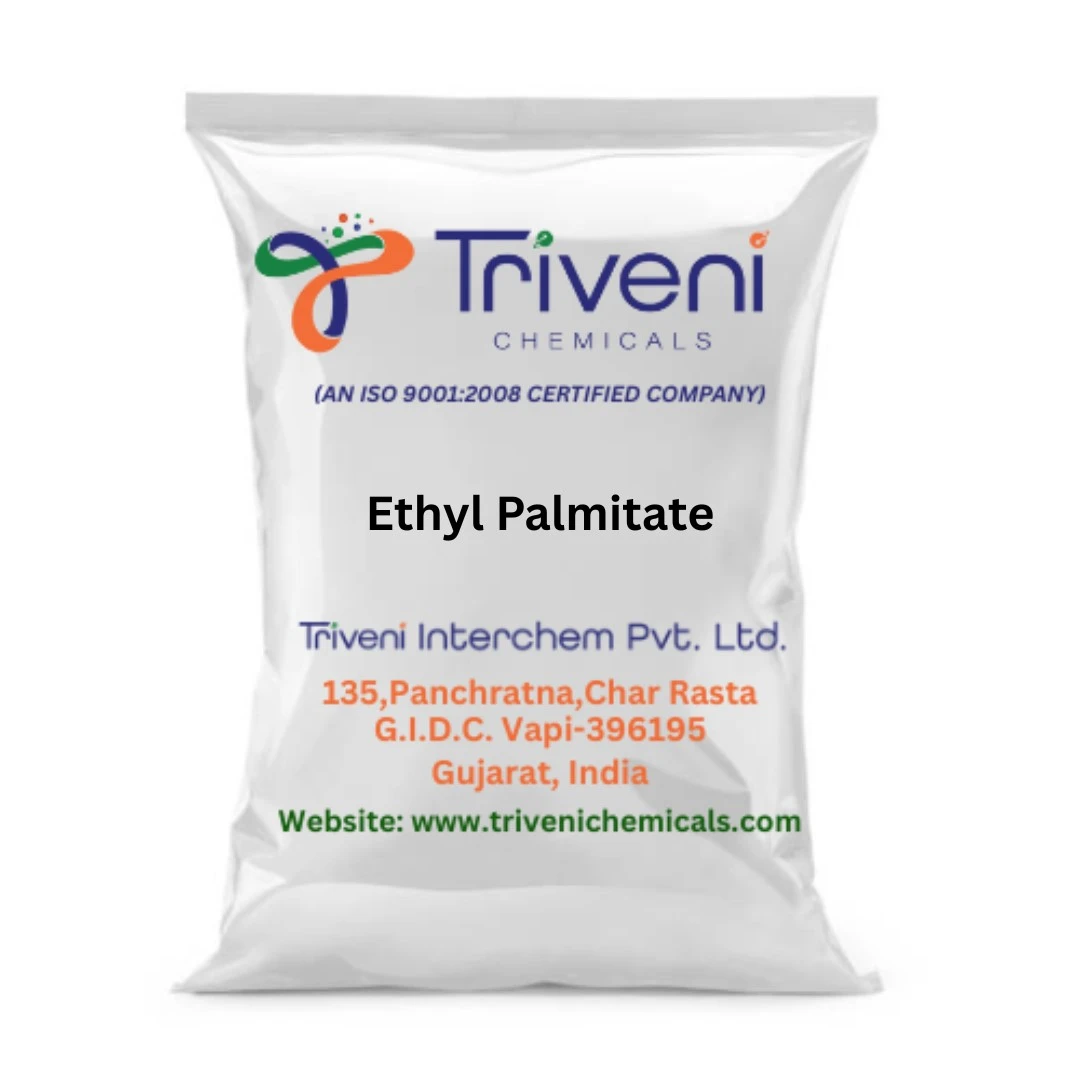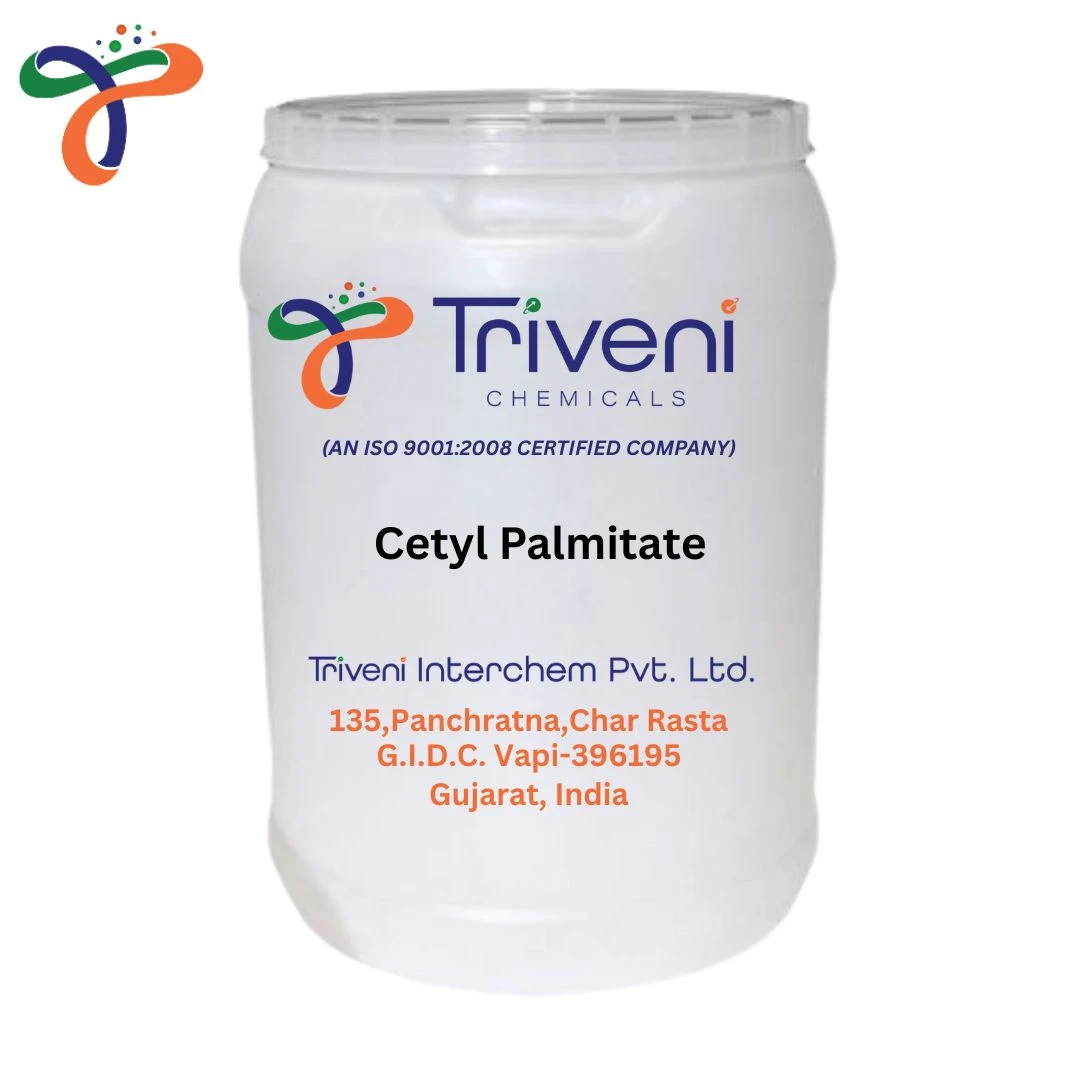Palmitate esters, also referred to as palmitate derivatives or palmitates, constitute a group of chemical compounds derived from palmitic acid, a saturated fatty acid present in animal and plant sources, including meat, dairy products, and palm oil. Through the esterification of palmitic acid, palmitate esters are formed, finding applications across..
Palmitate esters, also referred to as palmitate derivatives or palmitates, constitute a group of chemical compounds derived from palmitic acid, a saturated fatty acid present in animal and plant sources, including meat, dairy products, and palm oil. Through the esterification of palmitic acid, palmitate esters are formed, finding applications across diverse industries such as food, cosmetics, pharmaceuticals, and personal care. In the food industry, palmitate esters serve as crucial raw materials, functioning as emulsifiers, stabilizers, and texturizing agents. They enhance the texture and consistency of food products, preventing ingredient separation, improving creaminess in items like ice creams and chocolates, and maintaining desired consistency in baked goods. Additionally, these esters are employed in the production of vitamin and mineral supplements to boost absorption and bioavailability. In cosmetics and personal care products, palmitate esters act as essential raw materials with emollient properties, providing moisture and enhancing skin barrier function. Commonly integrated into lotions, creams, lip balms, and hair care products, they improve spreadability, stability, and overall sensory experience. Additionally, they serve as solubilizers and penetration enhancers, aiding the delivery of active ingredients into the skin. Within the pharmaceutical industry, palmitate esters are employed as raw materials for drug delivery systems. Their lipophilic nature enables them to encapsulate and transport poorly water-soluble drugs, thereby increasing bioavailability and therapeutic efficacy. They also play a role in formulating parenteral preparations like intramuscular injections, contributing to the solubilization and stabilization of certain drugs. Moreover, palmitate esters have been under scrutiny for potential health benefits. Some studies propose anti-inflammatory and antioxidant properties, positioning them as candidates for nutraceuticals and functional foods. However, comprehensive research is necessary to fully comprehend their mechanisms of action and potential contributions to human health. In essence, palmitate esters, functioning as raw materials, exhibit versatility with widespread applications in the food, cosmetics, pharmaceutical, and personal care industries. Their role as emulsifiers, stabilizers, and moisturizing agents underscores their importance in various products, enhancing functionality, sensory appeal, and overall performance.
Palmitate esters and palmitates are chemically related, with palmitate esters being formed by the reaction of palmitic acid (a palmitate) with alcohols, often used in cosmetics and food products.
Palmitate esters and 2-chloro-1,4-naphthoquinone can be interconnected in synthetic chemistry, where the ester may serve as a solvent or stabilizer in reactions involving 2-chloro-1,4-naphthoquinone for pharmaceutical or industrial applications.




